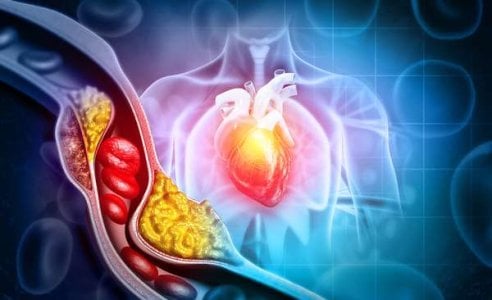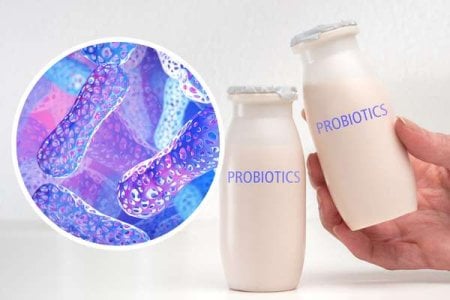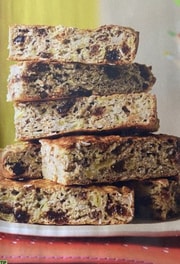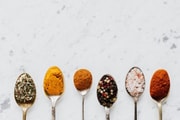Struggling with high cholesterol? Here's how you can lower it
Disclaimer: This article should not be considered medical advice. Please consult your GP before taking medications or making changes related to your health.
Are you worried about your cholesterol levels? High cholesterol can be life-threatening, and the Australian Bureau of Statistics has found that 1.5 million Australians have levels that put them at risk of having their first heart attack or stroke.
If you’re over 60 and living with high cholesterol, you’ll want to take action to ensure you stay healthy. So, what can you do to lower your cholesterol levels?
Why is cholesterol so dangerous?
First, let’s understand cholesterol. Essentially, it is a fat particle produced by your liver and found in your bloodstream. Too much cholesterol in the bloodstream can lead to fatty deposits accumulating in the blood vessels, making it harder for the blood to flow.
There are two main types of cholesterol: low-density lipoprotein, or LDL cholesterol, and high-density lipoprotein or HDL cholesterol.
LDL is the ‘bad’ type of cholesterol, as high levels of it in your bloodstream can lead to the build-up of plaque in your arteries, which increases your risk of heart disease and stroke.
HDL is the ‘good’ cholesterol, and it helps remove the bad cholesterol from your bloodstream and transports it back to your liver to be processed and excreted. Higher levels of HDL are linked to a reduced risk of heart disease and stroke.
Of course, managing your cholesterol levels through diet is key. Eating a balanced and healthy diet, choosing unsaturated ‘healthy’ fats (such as olive oil and avocado) over saturated fats (such as animal fats) and trans fats (found in biscuits, pies and pizza bases), as well as eating foods that contain soluble fibre, can all help lower your cholesterol levels.
Additionally, eating more soluble fibre can help lower cholesterol. Soluble fibres dissolve in water to form a gel-like substance in the stomach. The gel could bind the cholesterol molecules and prevent them from being absorbed in the bloodstream.
Soluble fibres can be found in whole foods like fruits, vegetables, oats, barley, beans and lentils.
Can supplements and other dietary interventions help?
There is a range of dietary supplements on the market that may help lower your cholesterol levels, including soluble fibre supplements as well as probiotics and red yeast rice.
Some examples of fibre supplements are:
Among the mentioned supplements, psyllium has the strongest evidence to support its use in improving cholesterol levels. Research suggests that consuming about 10g of psyllium a day (1 tablespoon) as part of a healthy diet can significantly lower total cholesterol levels by 4 per cent and LDL cholesterol levels by 7 per cent.
The role of probiotics in helping to lower cholesterol is an emerging area of research. Research suggested that probiotics can lower total cholesterol levels by 13 per cent. It is thought that probiotics help incorporate cholesterol into cells, as well as encourage the elimination of cholesterol via the faeces.
Other systematic reviews support these findings.
The probiotics mentioned in the studies contain Lactobacillus acidophilus and Bifidobacterium lactis, which come in capsules or powders and can be consumed daily. It is worth noting that the effects may vary according to the strains used, diet and health status.
Red yeast rice, on the other hand, is a non-fibre supplement. It is often taken as a complementary therapy and is thought to mimic the role of the cholesterol-lowering medications known as statins.
A 2022 systematic review found that taking red yeast rice supplements can reduce blood fat (triglyceride) levels but is not as effective at lowering your total cholesterol compared to statins.
However, the trials made for the research did not indicate if red yeast rice is safe in the long term. The authors also noted that there’s not enough evidence to support the positive results.
What should I do if I have high cholesterol?
Speaking to your doctor and dietitian is essential, and it’s important to note that supplements cannot replace a nutritious and balanced diet. Your doctor may suggest prescription medications and lifestyle changes such as quitting smoking, reducing stress, exercising regularly and getting enough quality sleep.
If you are over 60 and living with high cholesterol, dietary changes, supplements, and other dietary interventions may help provide the support your body needs to ensure your cholesterol levels don’t get too high.
Having high cholesterol can be worrying, but the good news is that you can make lifestyle and dietary changes to lower your cholesterol levels and reduce your risk of a heart attack or stroke.

Remember, members, it is vital to talk to your doctor about dietary and medicinal solutions to high cholesterol.
What do you think of this story? Share your thoughts in the comments below!
Are you worried about your cholesterol levels? High cholesterol can be life-threatening, and the Australian Bureau of Statistics has found that 1.5 million Australians have levels that put them at risk of having their first heart attack or stroke.
If you’re over 60 and living with high cholesterol, you’ll want to take action to ensure you stay healthy. So, what can you do to lower your cholesterol levels?
Why is cholesterol so dangerous?
First, let’s understand cholesterol. Essentially, it is a fat particle produced by your liver and found in your bloodstream. Too much cholesterol in the bloodstream can lead to fatty deposits accumulating in the blood vessels, making it harder for the blood to flow.
There are two main types of cholesterol: low-density lipoprotein, or LDL cholesterol, and high-density lipoprotein or HDL cholesterol.
LDL is the ‘bad’ type of cholesterol, as high levels of it in your bloodstream can lead to the build-up of plaque in your arteries, which increases your risk of heart disease and stroke.
HDL is the ‘good’ cholesterol, and it helps remove the bad cholesterol from your bloodstream and transports it back to your liver to be processed and excreted. Higher levels of HDL are linked to a reduced risk of heart disease and stroke.
Of course, managing your cholesterol levels through diet is key. Eating a balanced and healthy diet, choosing unsaturated ‘healthy’ fats (such as olive oil and avocado) over saturated fats (such as animal fats) and trans fats (found in biscuits, pies and pizza bases), as well as eating foods that contain soluble fibre, can all help lower your cholesterol levels.
Additionally, eating more soluble fibre can help lower cholesterol. Soluble fibres dissolve in water to form a gel-like substance in the stomach. The gel could bind the cholesterol molecules and prevent them from being absorbed in the bloodstream.
Soluble fibres can be found in whole foods like fruits, vegetables, oats, barley, beans and lentils.
Can supplements and other dietary interventions help?
There is a range of dietary supplements on the market that may help lower your cholesterol levels, including soluble fibre supplements as well as probiotics and red yeast rice.
Some examples of fibre supplements are:
- Natural soluble fibres, such as inulin (found in Benefiber), psyllium (for example, Metamucil) or beta-glucan (found in ground oats)
- Synthetic soluble fibres, such as polydextrose (for example, STA-LITE), wheat dextrin (also found in Benefiber) or methylcellulose (such as Citrucel)
- Natural insoluble fibres, which bulk out your faeces (such as flax seeds)
Among the mentioned supplements, psyllium has the strongest evidence to support its use in improving cholesterol levels. Research suggests that consuming about 10g of psyllium a day (1 tablespoon) as part of a healthy diet can significantly lower total cholesterol levels by 4 per cent and LDL cholesterol levels by 7 per cent.
The role of probiotics in helping to lower cholesterol is an emerging area of research. Research suggested that probiotics can lower total cholesterol levels by 13 per cent. It is thought that probiotics help incorporate cholesterol into cells, as well as encourage the elimination of cholesterol via the faeces.
Other systematic reviews support these findings.
The probiotics mentioned in the studies contain Lactobacillus acidophilus and Bifidobacterium lactis, which come in capsules or powders and can be consumed daily. It is worth noting that the effects may vary according to the strains used, diet and health status.
Red yeast rice, on the other hand, is a non-fibre supplement. It is often taken as a complementary therapy and is thought to mimic the role of the cholesterol-lowering medications known as statins.
A 2022 systematic review found that taking red yeast rice supplements can reduce blood fat (triglyceride) levels but is not as effective at lowering your total cholesterol compared to statins.
However, the trials made for the research did not indicate if red yeast rice is safe in the long term. The authors also noted that there’s not enough evidence to support the positive results.
What should I do if I have high cholesterol?
Speaking to your doctor and dietitian is essential, and it’s important to note that supplements cannot replace a nutritious and balanced diet. Your doctor may suggest prescription medications and lifestyle changes such as quitting smoking, reducing stress, exercising regularly and getting enough quality sleep.
If you are over 60 and living with high cholesterol, dietary changes, supplements, and other dietary interventions may help provide the support your body needs to ensure your cholesterol levels don’t get too high.
Having high cholesterol can be worrying, but the good news is that you can make lifestyle and dietary changes to lower your cholesterol levels and reduce your risk of a heart attack or stroke.
Key Takeaways
- High and low-density lipoproteins (LDL and HDL) play vital roles in the body's cholesterol levels and heart disease and stroke risk.
- Incorporating soluble fibre into one's diet or taking supplements like psyllium can help reduce cholesterol levels.
- Probiotics, specifically those containing Lactobacillus acidophilus and Bifidobacterium lactis, show promise in reducing cholesterol levels, according to research.
- Despite the potential benefits of supplements, lifestyle changes like diet, regular exercise, and adequate sleep are also essential in managing cholesterol levels. In some cases, cholesterol-lowering medications may still be needed.
Remember, members, it is vital to talk to your doctor about dietary and medicinal solutions to high cholesterol.
What do you think of this story? Share your thoughts in the comments below!









